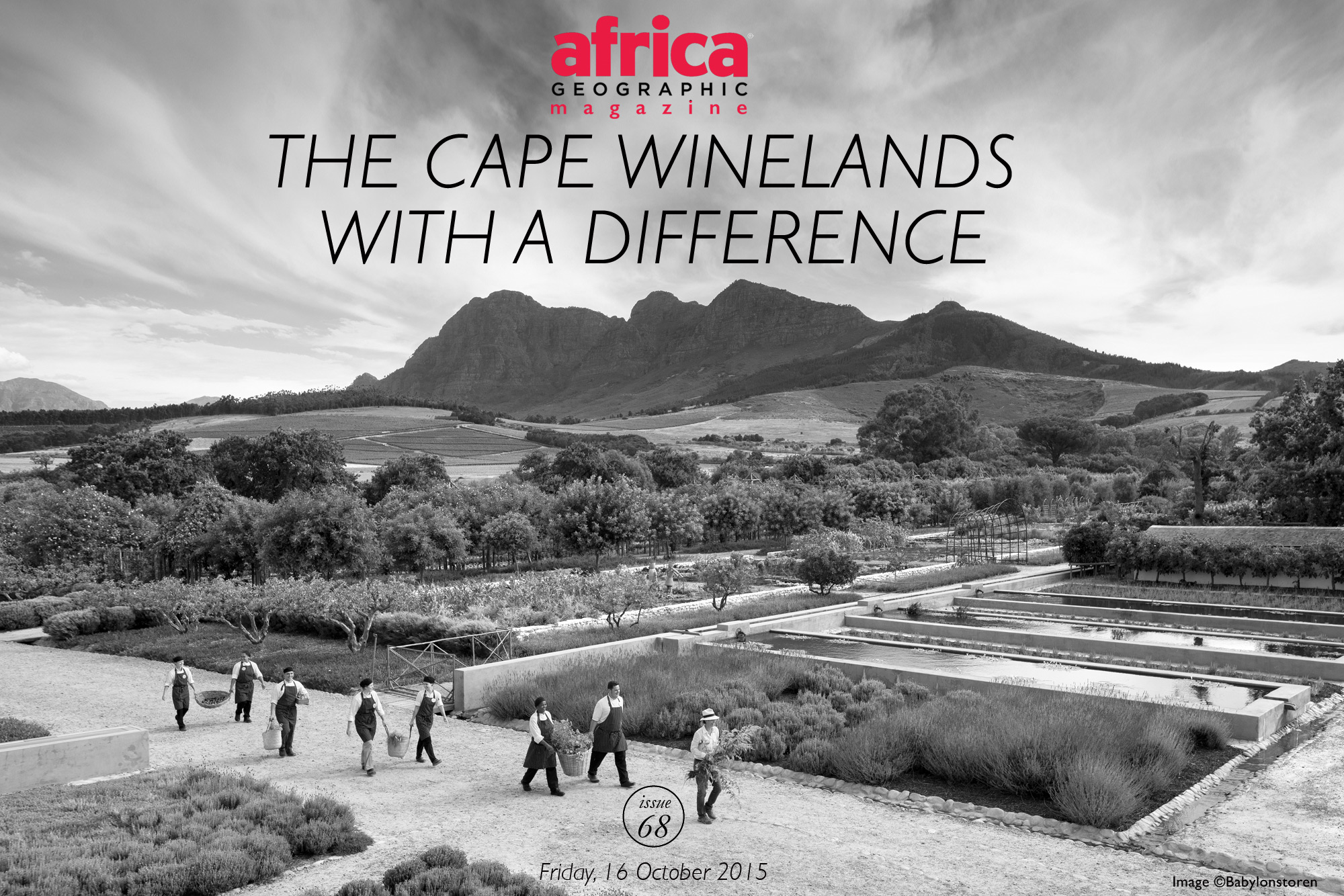
Treading lightly through the vineyards

A visit to the Cape Winelands is a great way to spend a sunny Saturday, a long weekend or a couple of nights tacked on to a holiday in Cape Town. And recently, I was privileged enough to spend four glorious Cap Classique-filled days in the area.
However, even after a very long weekend, I felt like I hadn’t even skimmed the surface of the many wonders the Cape Winelands offers.
With so many places to stay, wines to drink and fresh produce to stuff into my mouth, choosing which farms to visit was a tough decision and already had me reaching for the nearest glass of Pinotage. I wanted to see the farms that cared about what they gave back to the soil, the people and the environment.
 Find out about Cape Town for your next African safari. We have ready-made safaris to choose from, or ask us to build one just for you.
Find out about Cape Town for your next African safari. We have ready-made safaris to choose from, or ask us to build one just for you.
This treading lightly approach didn’t mean that I visited strictly sustainable or organic establishments, but simply that I chose to visit wine estates that are both making a difference and trying to offer something different.
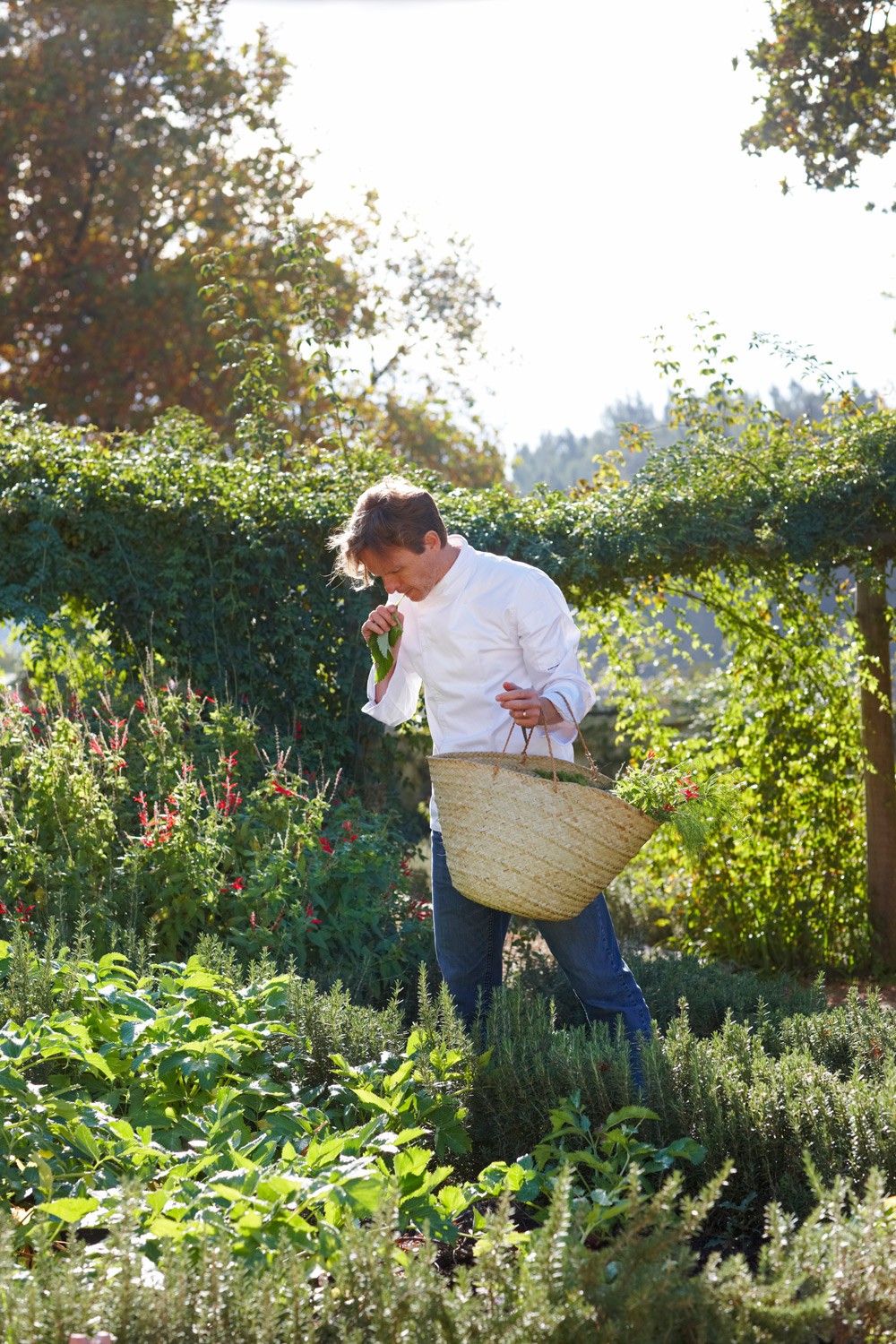
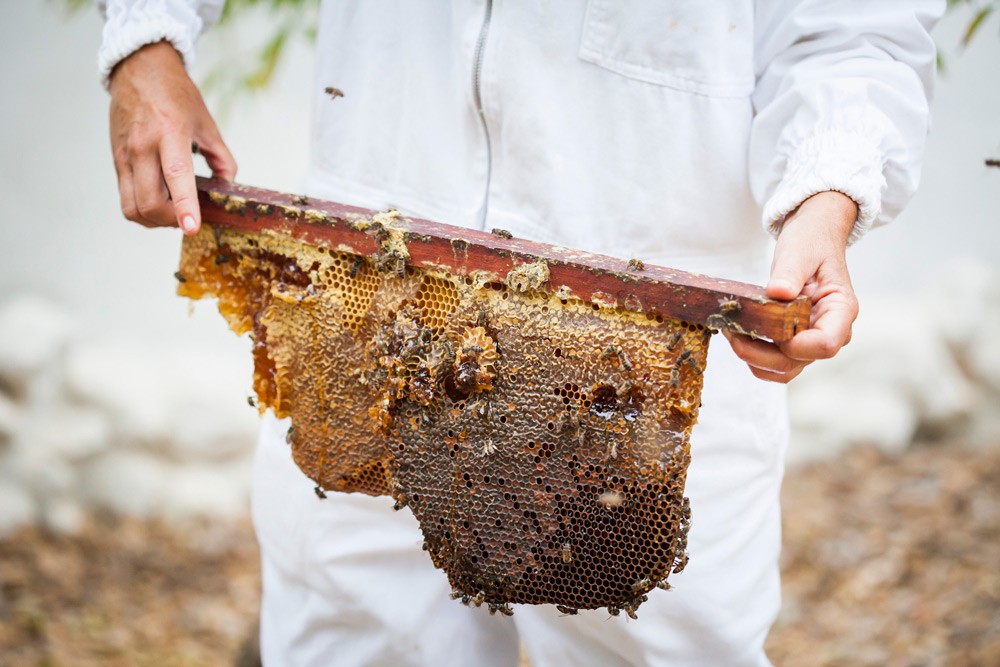
My first stop was Boschendal, where a thoughtful dinner in my charming room went down a treat after a long day at work; especially when I spotted the bottle of Blanc de Noir reflecting the sun setting over the Simonsberg Mountains.
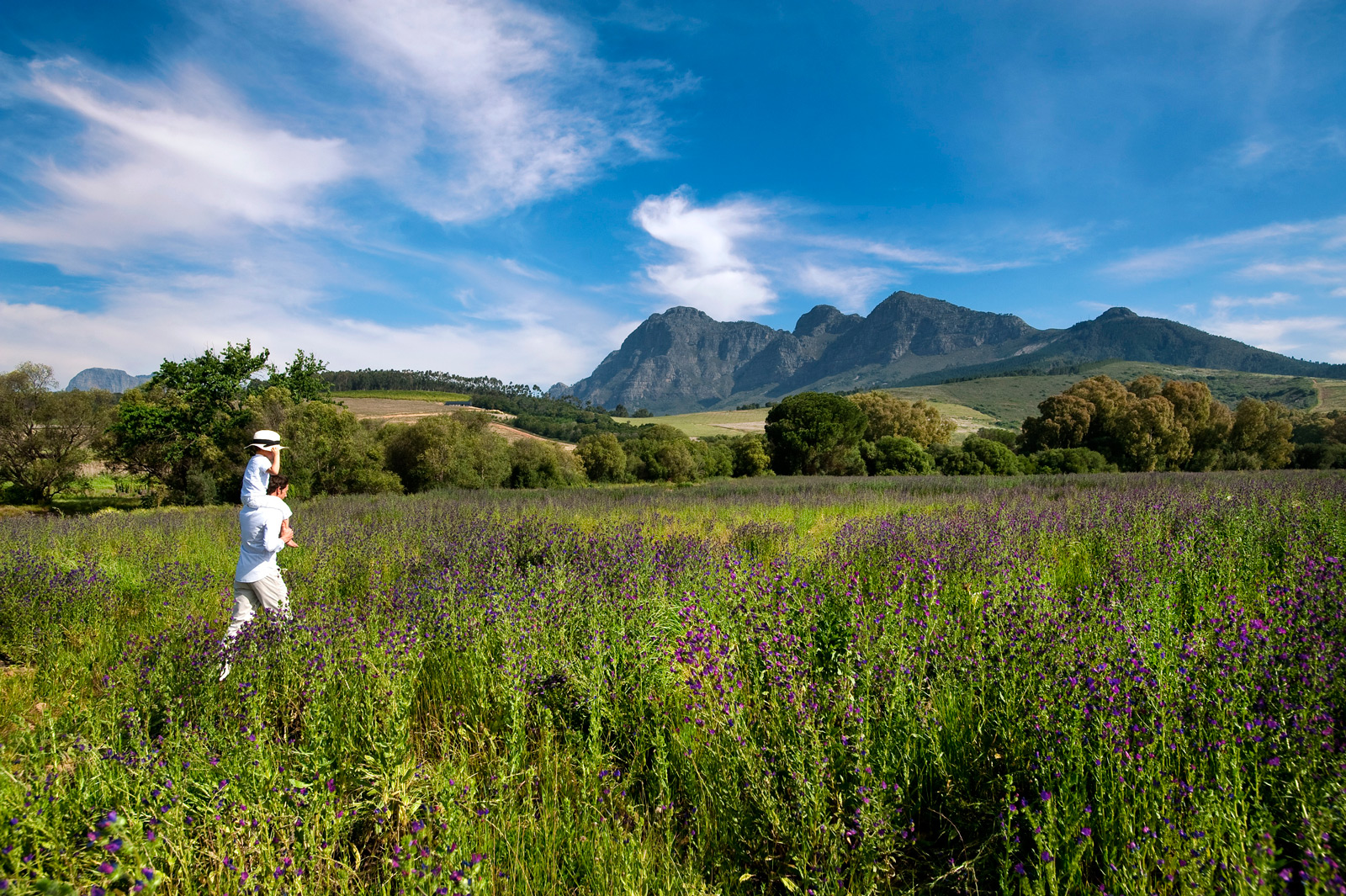
Boschendal was the perfect start to my Cape Winelands trip, considering that the first malva pudding ever served in a restaurant was rumoured to have been on that farm in the summer of 1979. And years after that famous dish touched the lips of awe-struck diners, I arrived on Heritage Day just in time for the farm’s 330th birthday bash! Boschendal has an admirable minimum food-miles policy of growing as much of the restaurant’s produce on the farm as possible – a pasture-fed black Angus cattle was on the spit that day, with no packaging or antibiotics included. A herb and veggie garden lies in front of the Werf Restaurant, and any food not locally grown or reared is sourced from sustainable small producers in the area.
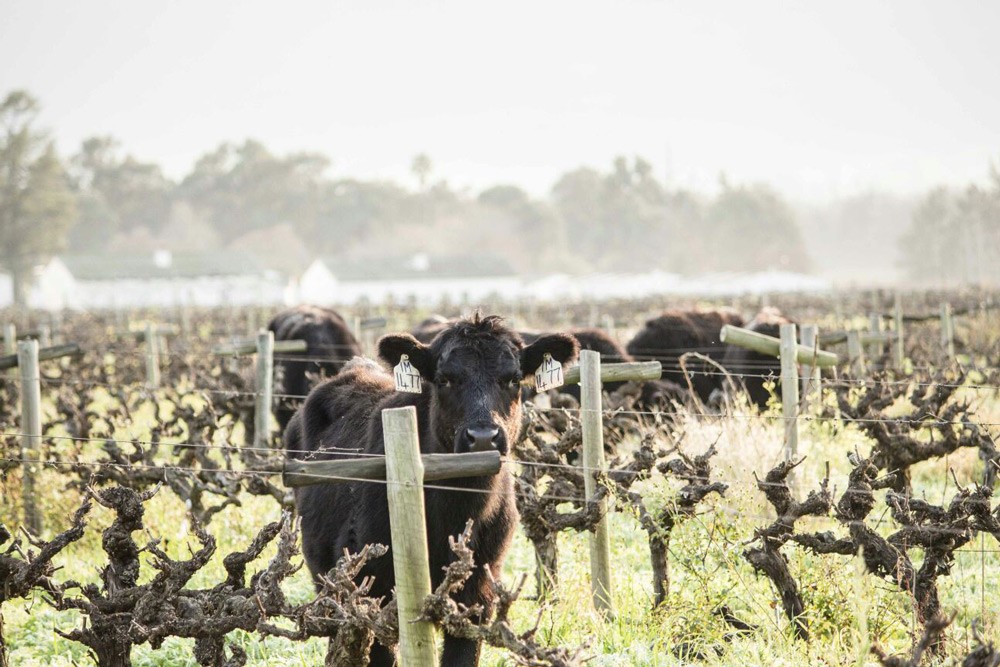
From Boschendal, it was an easy meander down the road to quirky Babylonstoren, where Gundula, the resident gardener, introduced me to her pride and joy. As she strolled through the garden of edible greens in her zig-zag skirt and Pippy Longstocking socks, she spoke of how the team at Babylonstoren had nurtured a virtual wasteland into what is now the heart of the farm. This seasonal wonderland is home to laughing ducks that may waddle behind the occasional bride but whose real job is to act as an organic pest control by chomping up snails. An insect hotel also ensures that the organic produce from the garden is as fresh on your plate as it was on the bush.
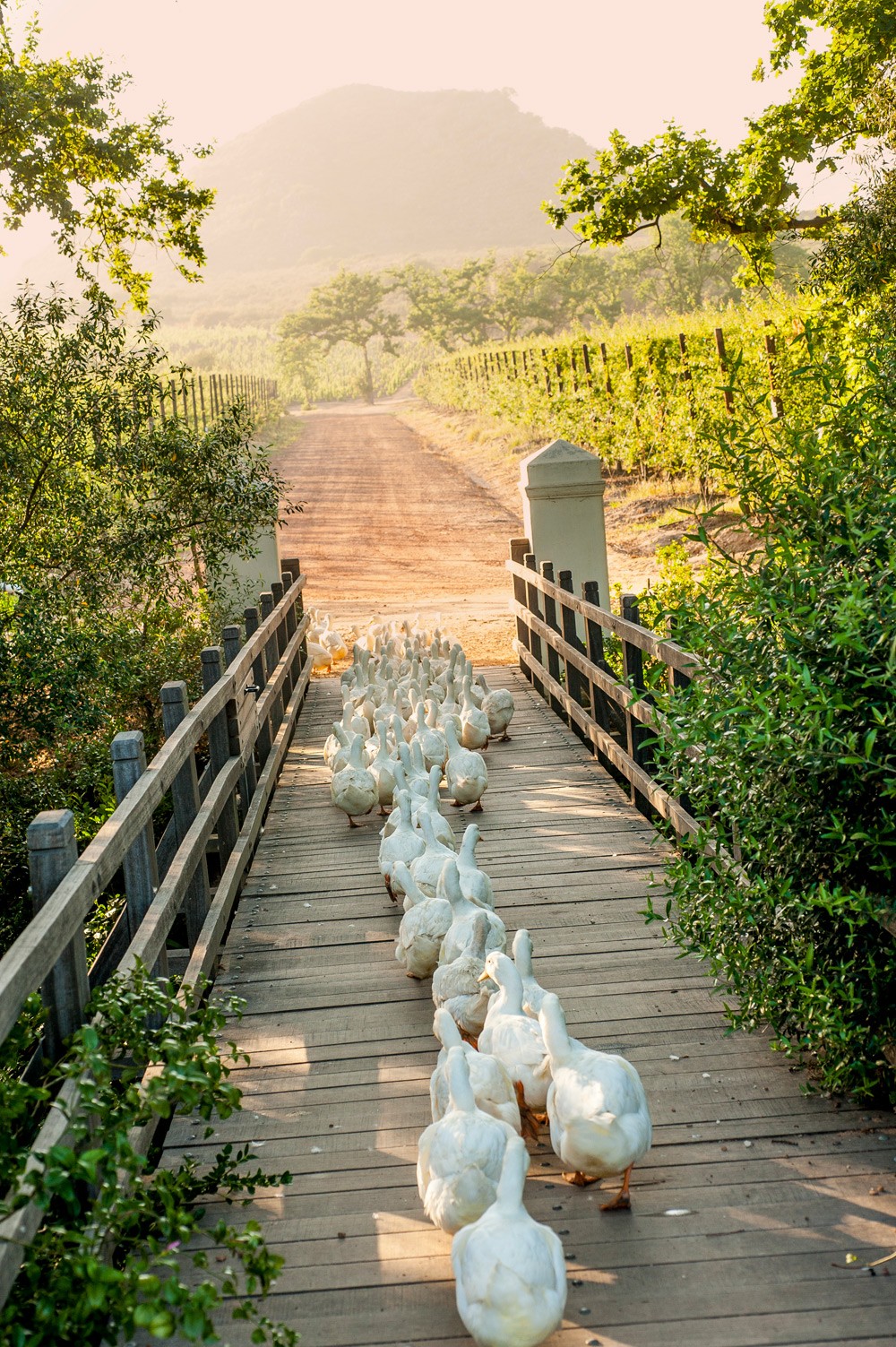
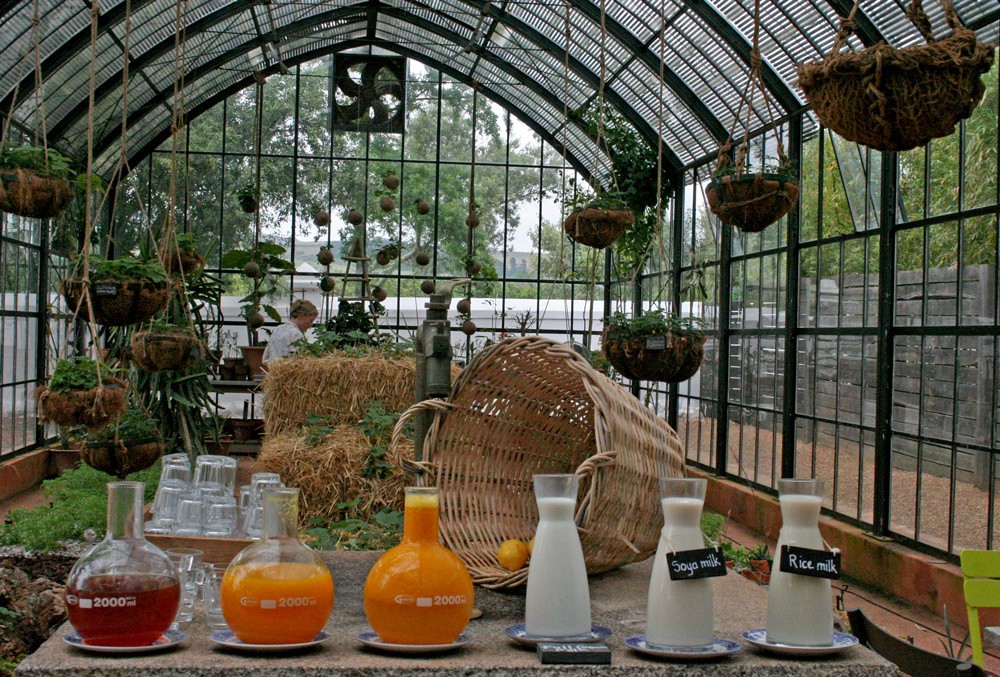
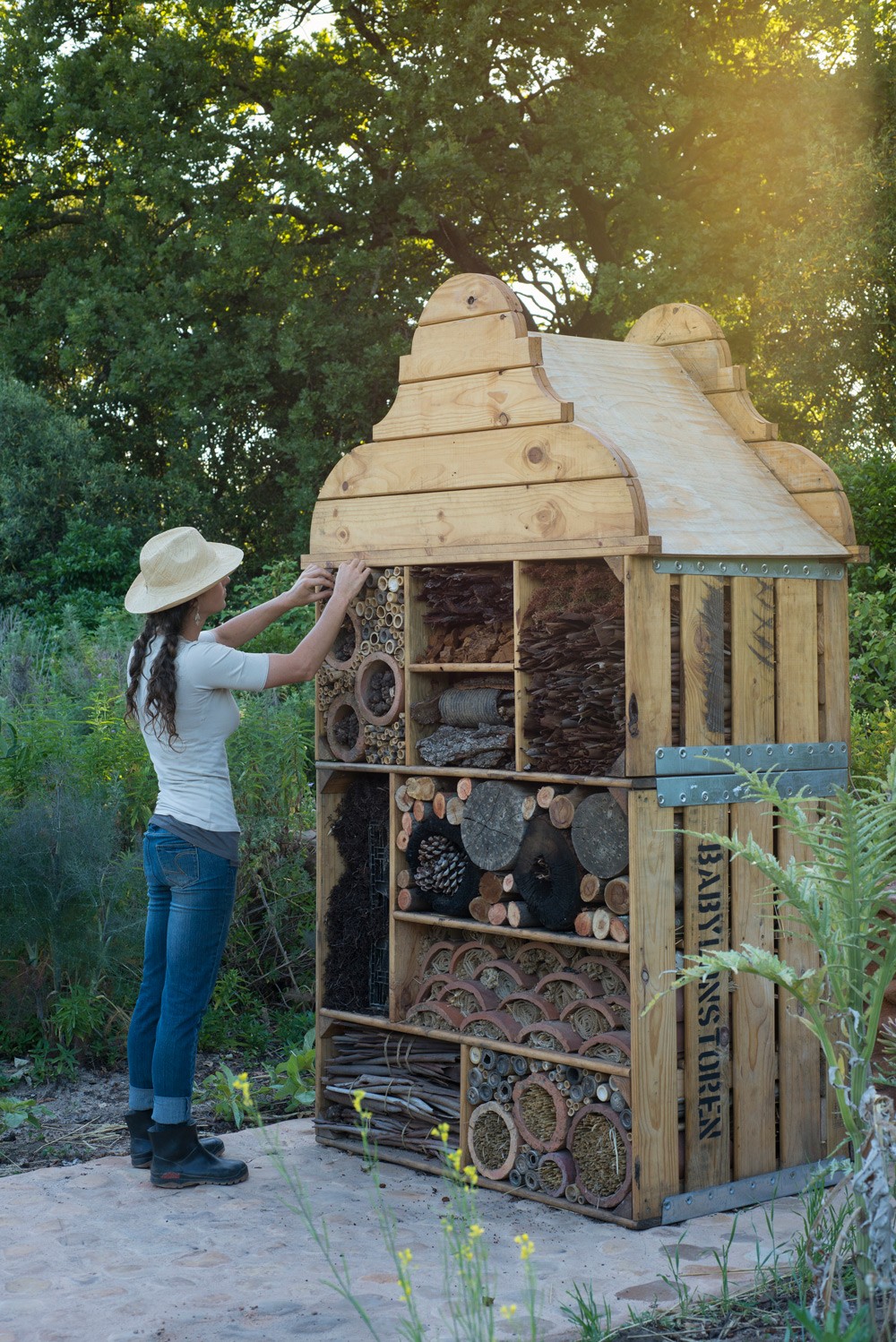
After an early wake-up call followed by a stretch of yoga in the blissful Babylonstoren spa, I left behind the traditional Cape Dutch farms and moved on to the modern setting of Leopard’s Leap. While I indulged there in a Culinaria Food and Wine Pairing, it dawned on me that the magic of the Cape Winelands is thanks to the passion of its people. Creating wine is an art form – each grape is lovingly cared for, each wine tenderly nurtured, and every bite of food is that wine’s soulmate – bringing out the best. And La Motte, the sister farm of Leopard’s Leap, also adds another passion to the mix with a museum that features a rotating gallery of local art and is dedicated to Jacob Hendrick Pierneef, whose famous linocut designs adorn the estate’s Pierneef collection of premium wines.
La Motte is also a proud champion of the Biodiversity and Wine Initiative (now called WWF Conservation Champions) – a collaboration project between the wine industry and the conservation sector that recognises farms leading the way in production integrity, environmental sustainability and conservation.
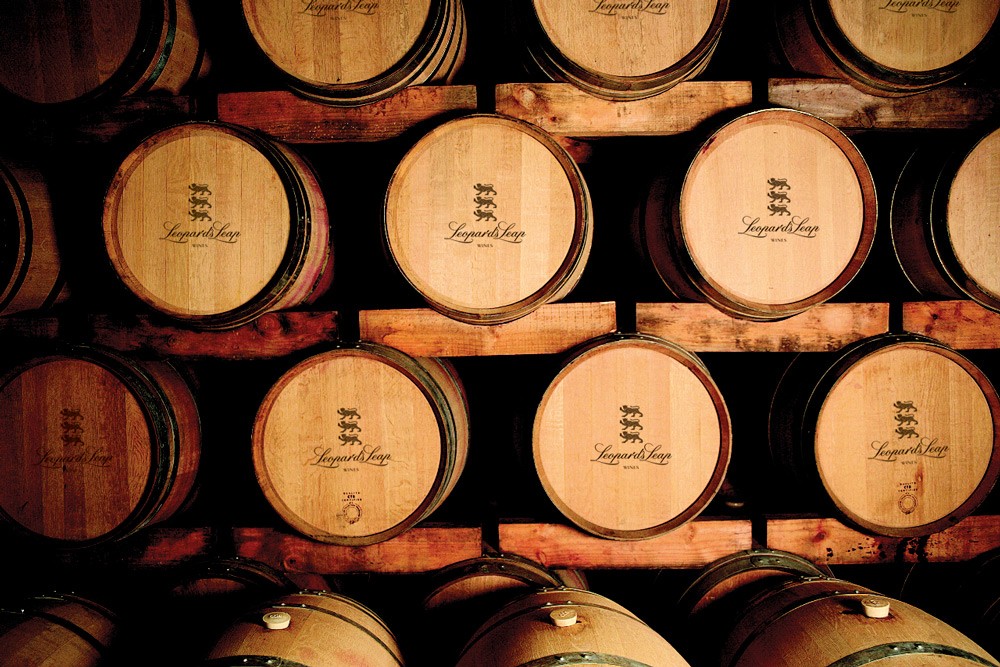
This passion for the natural environment was evident in the Cape Winelands, with nearly 90% of South African wine producers now displaying the Integrity and Sustainability Seal. At Leopard’s Leap, faces lit up at the mere mention of the Cape Leopard Trust, of which they are a sponsor. Jeannie and Anita are doing great work in the Cape Winelands and beyond to preserve over 60 Cape leopards that call the area home. A mother leopard with small cubs has even been spotted just up the slopes from the vineyards.
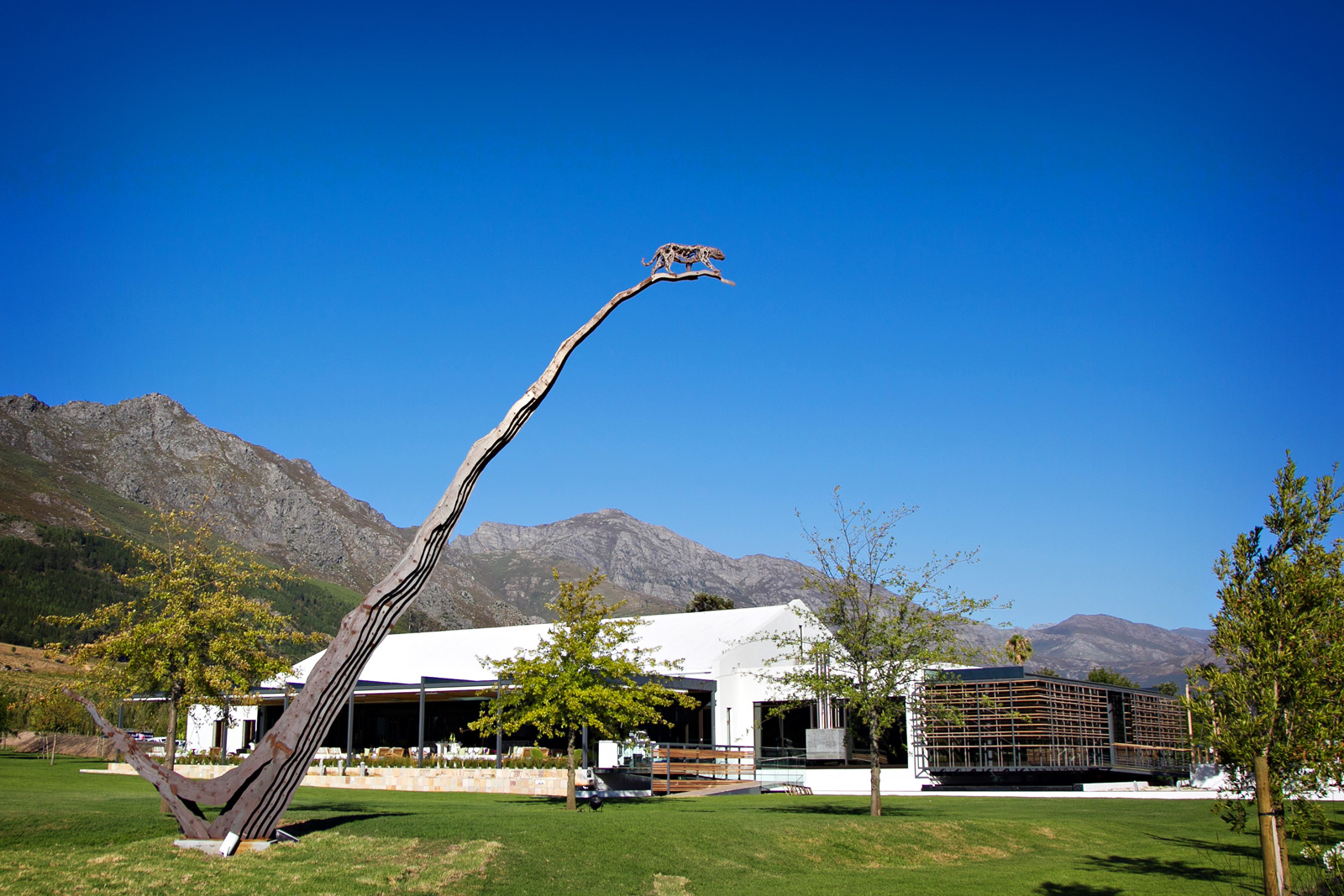
After all the food, a short nap was appreciated in a shiny bedroom complete with feathered lamps at Jordan Wine Estate – a far cry from the famous Cape Dutch gables but a great example of how the traditional and modern have interwoven themselves throughout the area. At Jordan, the natural environment gives each wine its unique appeal, and every wine has its own story. The one that stood out for me was the chameleon range, inspired by the Cape dwarf chameleon. Proceeds from the wine even go to the Jordan Chameleon Bursary for the conservation of these cute little creatures. I had the pleasure of tasting more of these wines at Jordan Restaurant, which has been voted one of the country’s top ten restaurants by Eat Out, and is where the famous George Jardin uses local ingredients to create delicious masterpieces.
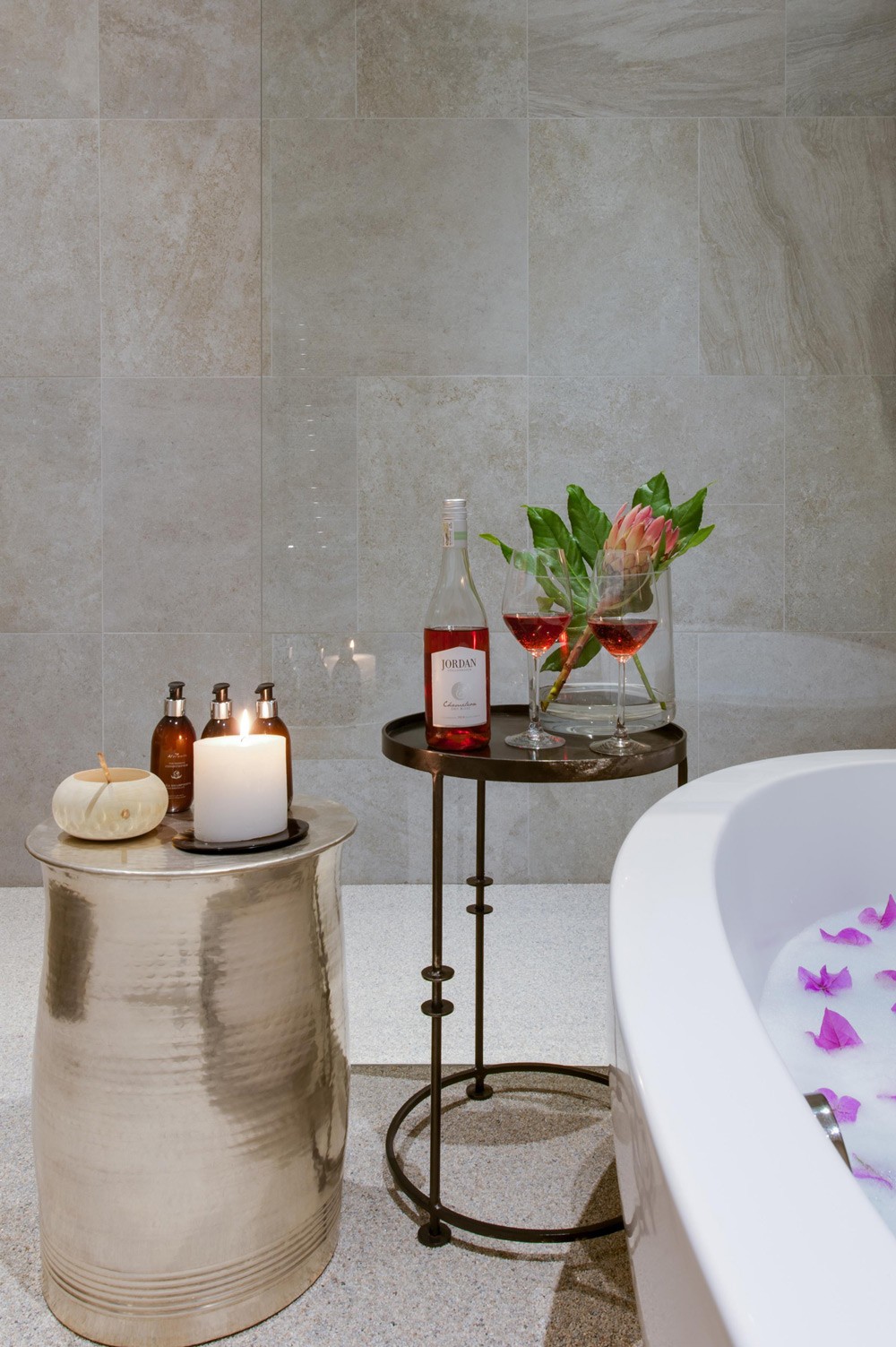
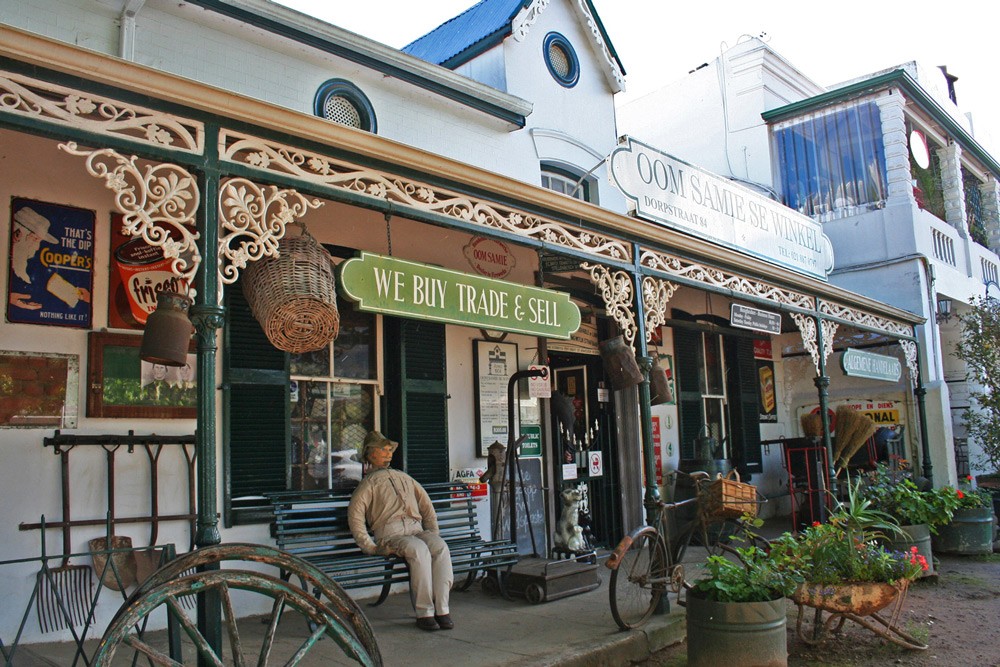
From Jordan, it was on to the ever-popular Spier Wine Estate, exploring the farm on a Segway tour and indulging at Eight Restaurant. Eight offers a farm-to-table experience with an inventive tapas-style menu allowing you to choose from various delights. At the same time, I took in the nifty recycled fixtures, such as the 10,000 flower-shaped roof fittings made from old milk bottles.
My last day brought a tour of Stellenbosch by bicycle, courtesy of Adventure Shop. This low carbon emission tourism experience saw me weaving through town, learning more about Stellenbosch’s heritage and Cape Dutch influence. It was then time for a final spot of wine tasting as I cycled from farm to farm while soaking up the breathtaking scenery. To round off the day nicely, we visited the Cape Winelands region’s most picturesque tasting room at Stark-Condé. We enjoyed hand-crafted chocolates with fine wines at Lanzerac. The cycle back allowed me to work off the fantastic food and wine from the week, and while I stopped to give my tired legs a break, I thought about how lucky I am to live within easy reach of an area so rich in history, culture and culinary delights.
And now, the next time I pick up a bottle of my favourite Sauvignon Blanc, I will know that it has its own story.
My top picks of what to do:
Go horse riding at Boschendal
Take a ride on a Clydesdale – the working (but not too hard) horses. These happy plodders will take you around the farm, passing the pasture-fed Angus cattle while you take in the surrounding views of the Drakenstein Valley. With almost half of the farm’s land set aside to conserve the fauna and flora of the Cape Floral Kingdom, overnight guests are encouraged to explore by mountain bike or on foot.
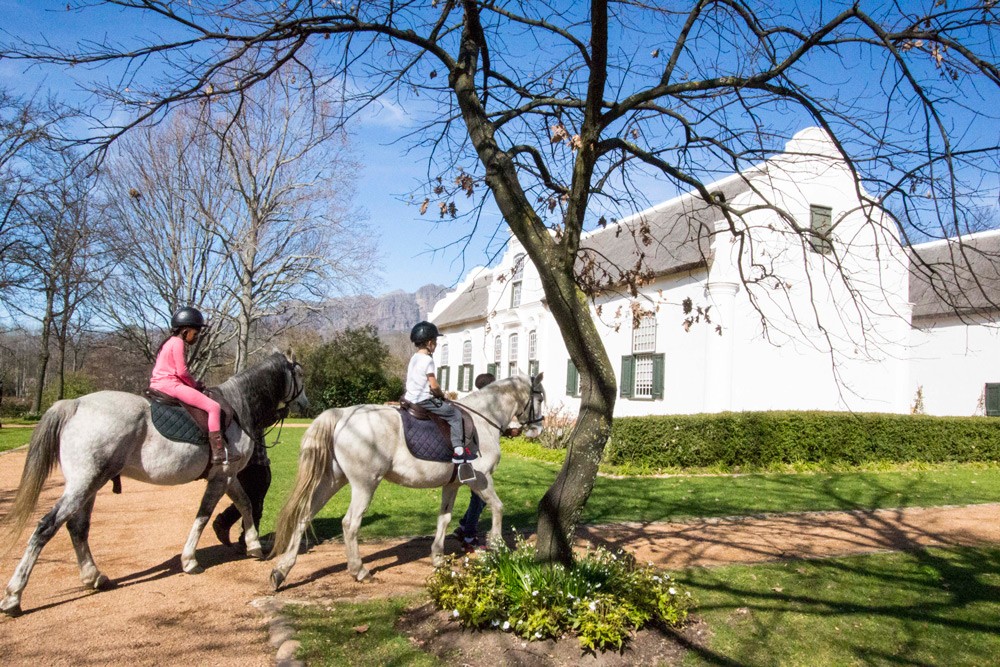
Vineyard and cellar tours at Jordan
Jordan Wine Estate is a bit off the beaten track, but getting there is worth the extra effort. The tour of the estate’s vineyards by Gary Jordan allowed me to take in the fabulous location of Jordan with its 360° views of the Winelands, oceans and even Table Mountain. Finish the tour in the estate’s underground cellar and appreciate how their Chardonnay is made – with a glass of it in hand.
Segway tours at Spier
Enjoy the 300 hectares of biodynamic farming, where mobile chicken coops and pasture-reared Angus cattle are used to fertilise vineyards. Pass by the free-range chickens and whizz past the wastewater treatment plant where all of the farm’s wastewater is recycled, which means that Spier is not even batting an eyelid even after the Cape’s driest winter since before I was born.
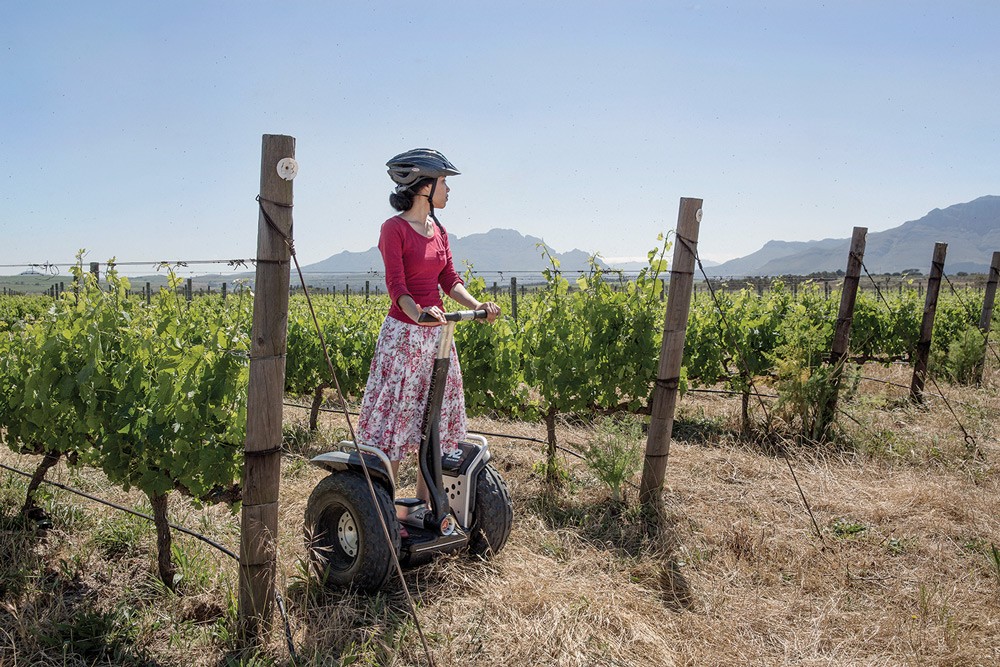
My top picks of where to stay:
Boschendal
Boschendal offers several accommodation options – you and ten friends can even spend time in Cecil John Rhodes’ holiday home playing bowls, dining under the stars and swimming in your own eco-pool. Franschhoek, Paarl and Stellenbosch are all within a 15-minute drive, making Boschendal the perfect base for your ultimate Winelands getaway.
Spier
Spier is an excellent choice for families. There is so much to do at the farm, from picnicking with homemade deli treats to exploring the educational protea garden or visiting the Eagle Encounters rehabilitation centre. It is also a hop, skip and a jump away from many of Stellenbosch’s other great farms, markets, restaurants and shops.
 Find out about the Cape Winelands as part of your next African safari – find a ready-made safari or ask us to build one just for you.
Find out about the Cape Winelands as part of your next African safari – find a ready-made safari or ask us to build one just for you.
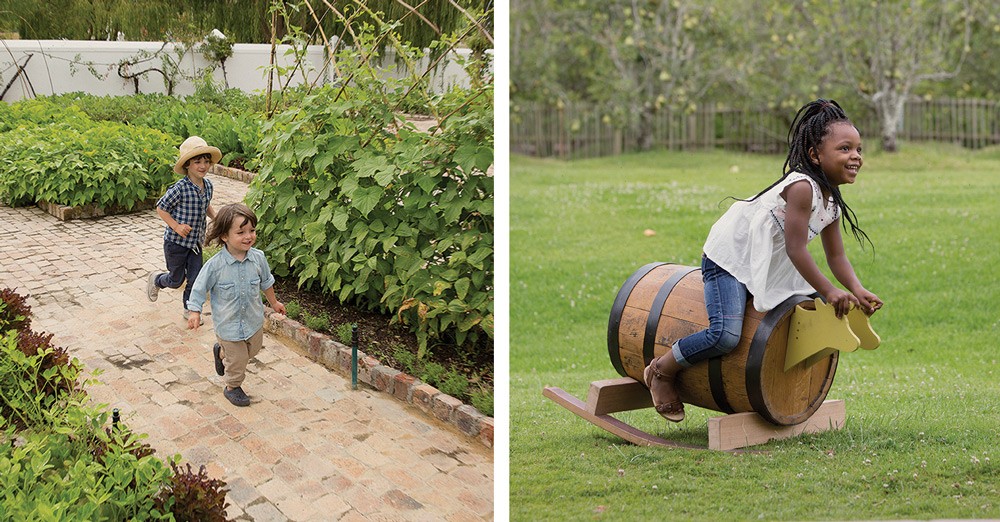
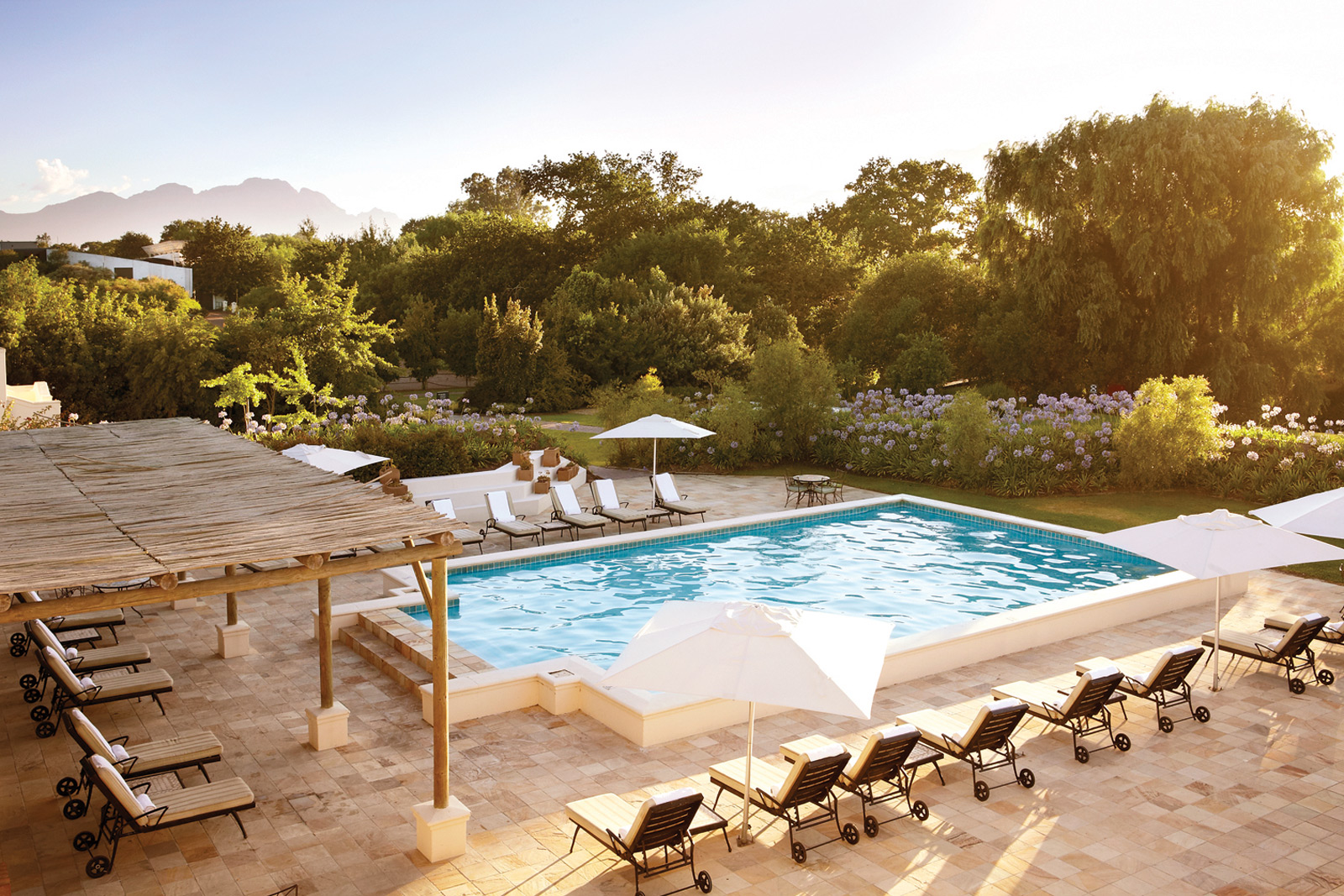
My top picks of where to eat:
Jordan Restaurant
This is the locally sourced strawberry on top of Stellenbosch’s culinary collection. The menu changes daily and is prepared by a team of seven expert chefs in an open kitchen. As some of the last guests to leave, we had the privilege of eavesdropping on the multi-talented George Jardin as he planned the menu for the next day, ordering the freshest ingredients from his suppliers – a process which takes at least an hour and a half after the last guest has gone to bed. This results in the freshest, most exquisite four-course meal, and I suggest you indulge in their food and wine pairing menu, then skip the sweet stuff for a trip into the cheese room, where I selected a fantastic array of South Africa’s top cheeses to round off my meal.
Babel
The menu at Babylonstoren’s signature restaurant changes daily according to what vegetables and fruit have been gathered from the garden. The fresh papaya that Gundula discovered on my garden tour undoubtedly found its way into the generous three-course wonder offered at Babel that evening.
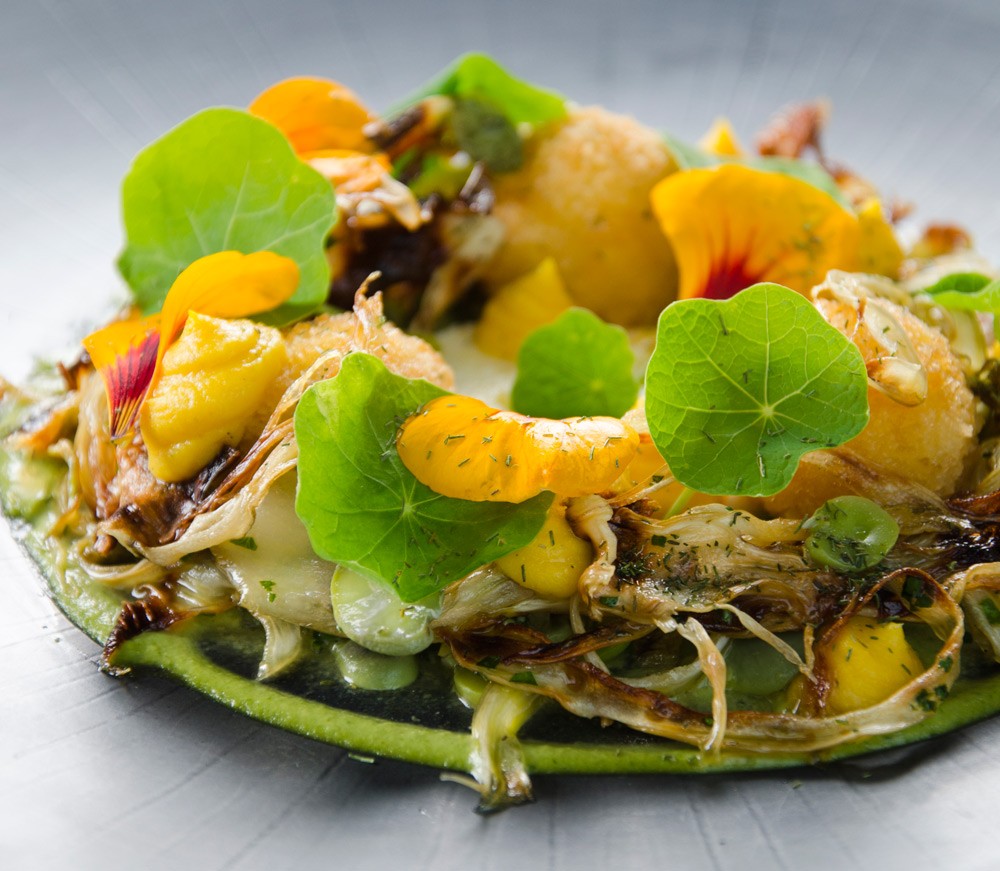
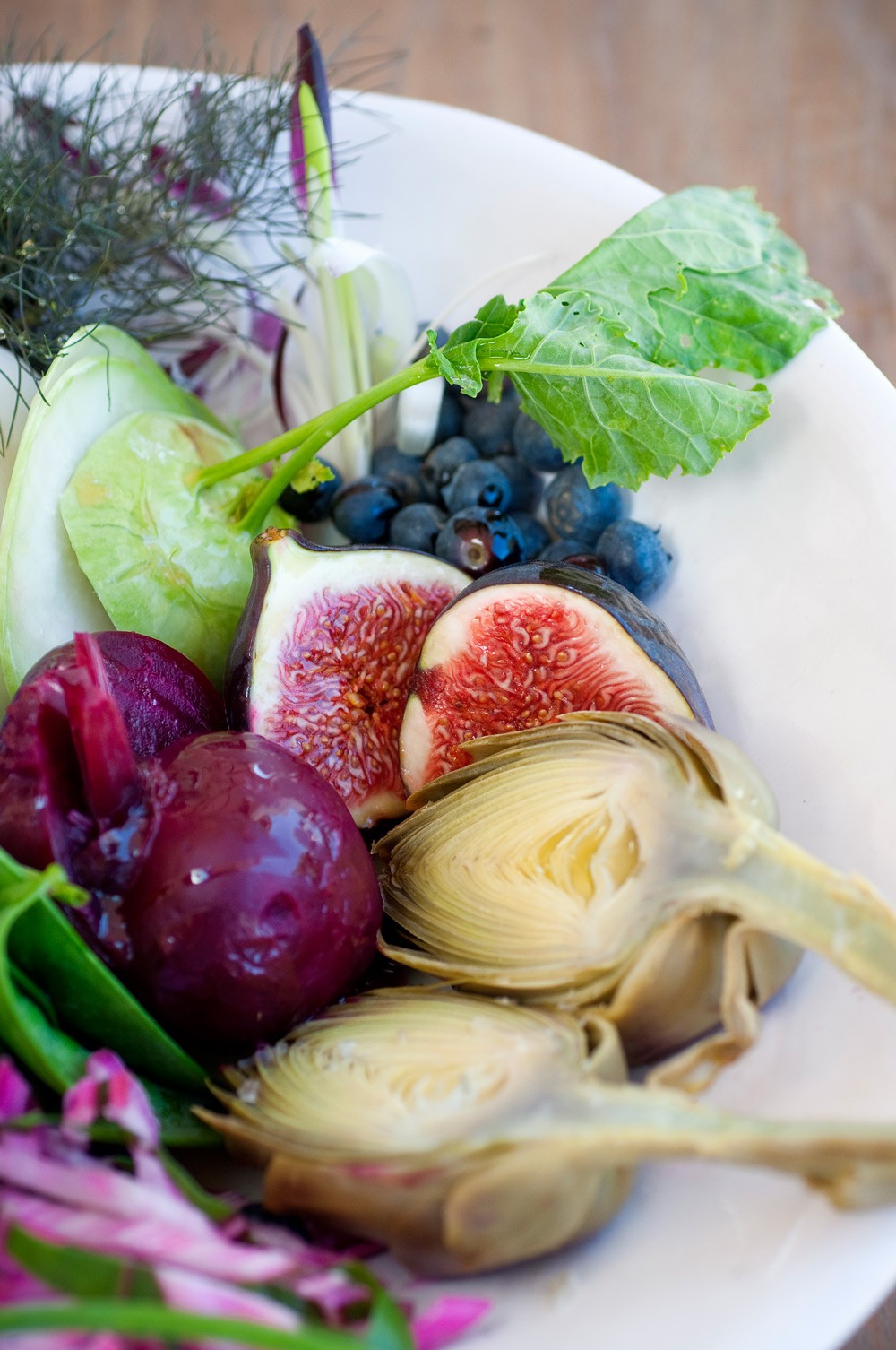
Leopard’s Leap
Relaxed rotisserie lunches with wine cocktails are offered at Leopard’s Leap from Wednesday to Sunday. Alternatively, their cooking classes often result in full bellies being supported by wobbly legs that need the help of newfound friends to find the door when it’s time to go home. The food and wine pairing is an intimate experience that is said only to get better the more times you partake!
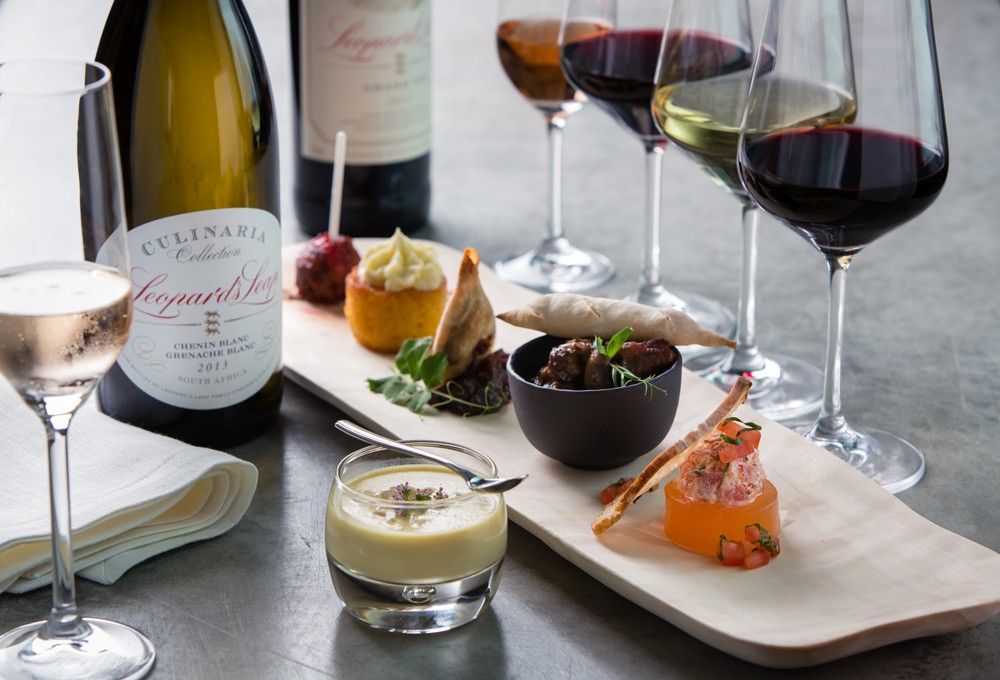
Pierneef à la Motte
The Pierneef à la Motte restaurant overlooks a gorgeous pond, and diners can enjoy meals made from biologically farm-grown produce. The farm shop also sells this produce and a variety of freshly-baked bread – including a Shiraz loaf. However, the highlight for me was the Winelands Tea Experience, where homemade confectionaries were paired with my gorgeous crème caramel tea selection. Not to mention that the Van der Hum truffle was to wine for!
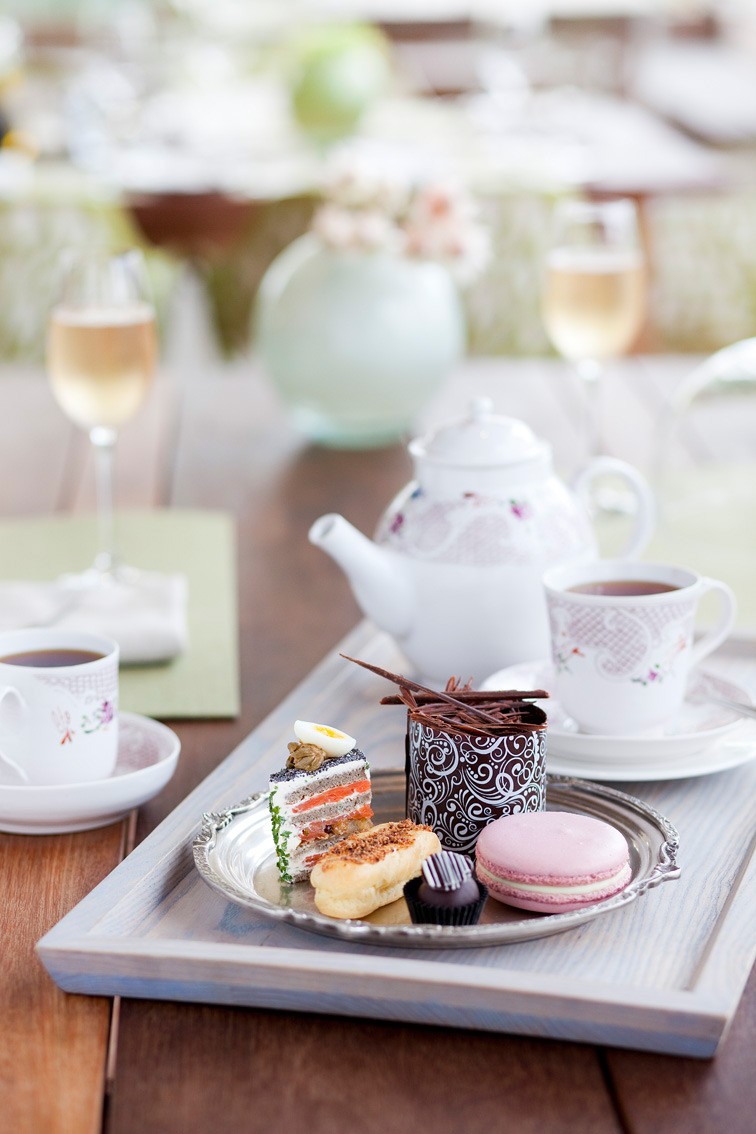
To comment on this story: Login (or sign up) to our app here - it's a troll-free safe place 🙂.![]()




